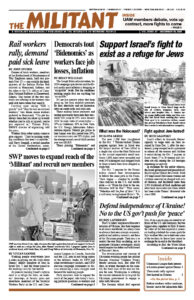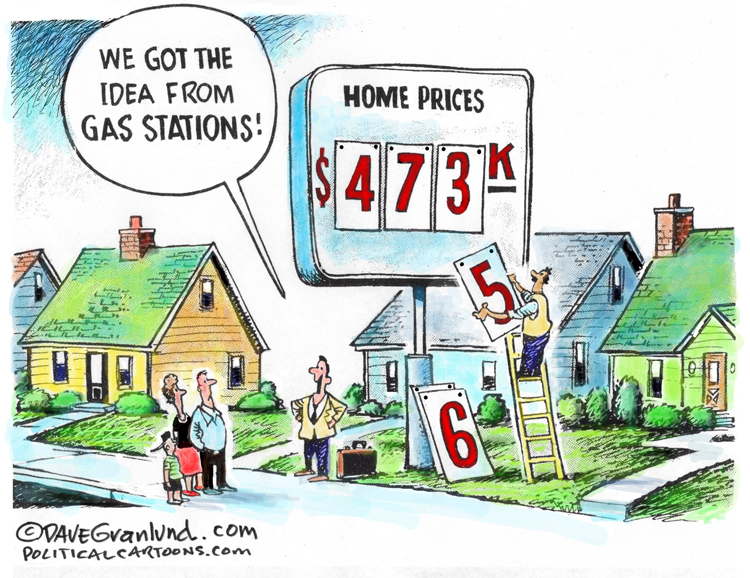The Joseph Biden administration, his 2024 campaign spin doctors and the liberal media insist inflation is dropping to “acceptable” levels. But the conditions working people face are anything but “acceptable.”
It’s not just grocery prices that keep going up, but basic monthly payments for heat, electricity and car insurance; debts on credit cards; and child care.
Those making house payments and renting apartments have seen their electricity bills jump by 25% since January 2020. In some states it’s even higher — 59% in California; 42% in New York, the U.S. Energy Information Administration reports. Natural gas prices to heat homes over this period rose 29%; car insurance costs are 33% higher; and the average annual cost of child care last year was $10,853.
Those praising “Bidenomics” and shilling for his reelection are worried. “Even most Biden voters don’t see a thriving economy,” the New York Times said Nov. 28.
Potential Biden voter Mackenzie Kiser, a student at the University of North Georgia, told the Times, “The housing market is absolutely insane. We paid the same for our one-story one-bedroom cinder-block 1950s house as my mom paid for her three-story, four-bedroom house less than a decade ago.”
Her friend, Lawson Millwood, added, “From what I see it really doesn’t look like the working class is benefiting from many things recently.”
In fact, 60% of U.S. workers say their income and wages haven’t kept up with increasing prices. Most U.S. households would need to take home $10,000 or more over what they made three years ago to afford the same living conditions they had then, a congressional committee admitted.
Prices to purchase a house rose to a record level in September, and high mortgage rates of about 7.5% prevent millions of working people and increasing numbers in the middle class from buying a home to start a family. This, together with increased apartment rents, has forced many youth in their 20s and 30s to hunker down with their parents, relatives or friends.
The median price of a home in October was $391,800, as sales that month dropped to the lowest level in over 13 years.
At the same time, in a reflection of the anarchy of profit-driven capitalism, construction bosses are in a frenzy to put up houses. “Despite the emerging signs of a slowdown, investors should know there are opportunities in the markets,” one economic “expert” told Reuters.
Many workers who took out loans to buy a car over the past few years are finding that high interest rates are making monthly payments increasingly difficult. Banks and auto finance loans last year hit a record $747 billion. Total auto debt owed to these vultures was $1.6 trillion at the end of September. The repo man waits in the wings.
Manufacturing contraction
Retail outlets, including Walmart and Amazon, are implementing new “keep it” policies for those wanting to return items purchased during Black Friday sales over the Thanksgiving holiday. The reason? It costs these companies more to pay you to ship these items back, restock them on shelves and sell them again than they’re worth. This is just one hint of the rapacious profits they rake in, even when their stuff is on sale!
And there are increasing signs of a job crisis brewing. November was the 13th straight month where the government reported a contraction in manufacturing — the longest period since 2000-02. And the bosses say their inventories are still “bloated.”
Industries that are contracting include paper products, electrical equipment, appliances, computers and electronic equipment.
Needless to say, Reuters reported an increase in manufacturing “attrition, freezes and layoffs.”
The economic crisis facing working people reflects a deepening social crisis rooted in the workings of the capitalist system. One example is that the number of suicides reached a record high in 2022. According to the government, 49,449 people killed themselves last year, up 3% from the previous year. This figure is expected to increase when final data is available, the Washington Post reported. The highest suicide rates were for men older than 75.
The weakening of the capitalist economy has an impact on social services at all levels. The government in New York City announced at the end of November that all public libraries must close Sundays because of budget cuts. They also plan to slash spending on books and videos, building maintenance and repairs.


